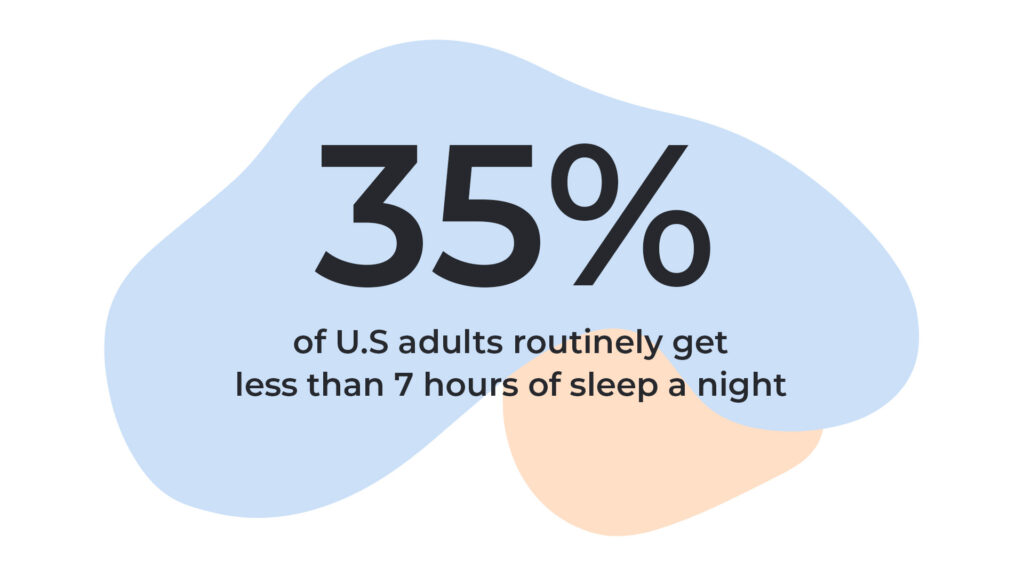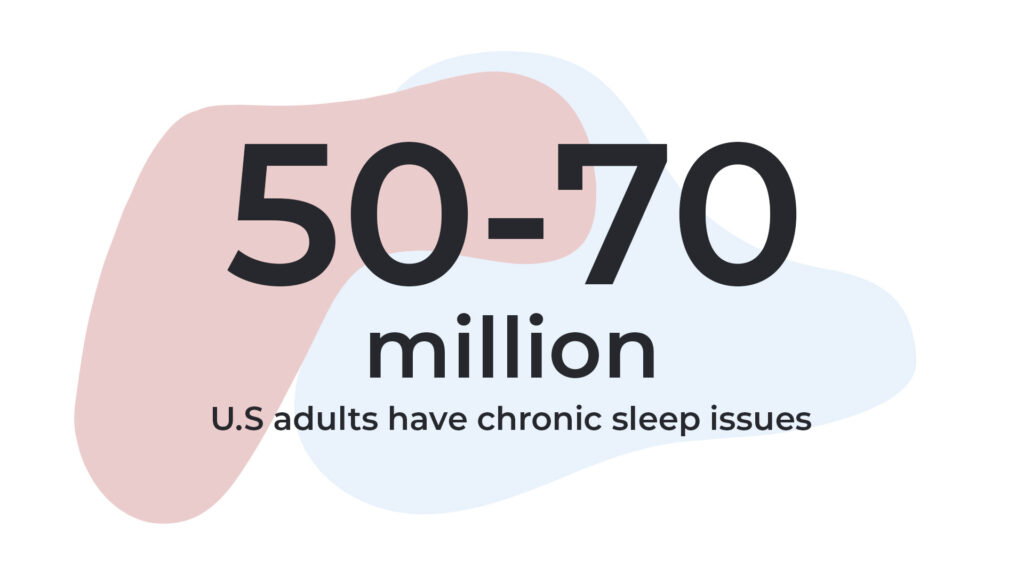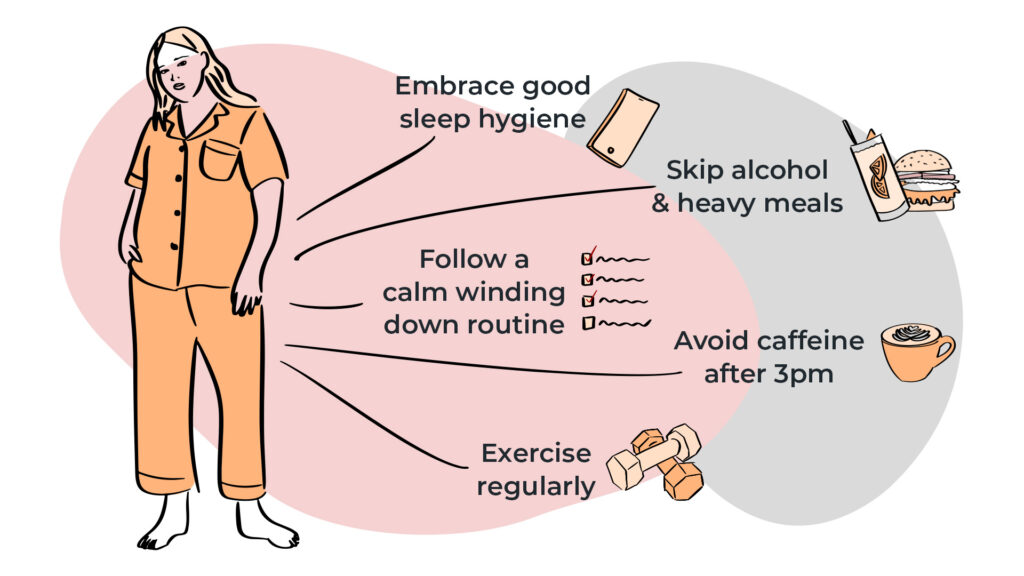What is Sleep Tourism?
Disclosure: By clicking on the product links in this article, Mattress Nerd may receive a commission fee at no cost to you, the reader. Read full disclosure statement.
If you look forward to vacation days just so you can enjoy some extra sleep, you might want to try sleep tourism. Resorts and hotels around the world offer travel experiences and amenities that emphasize better sleep quality for a restoring getaway.
Since 50 to 70 million adults in the U.S. have chronic sleep issues, and roughly 35 percent of U.S. adults routinely get less than seven hours of sleep every night, it’s no surprise that the sleep tourism trend is catching on.
What is Sleep Tourism?


While specifics can vary from one resort or hotel to the next, the goal behind sleep tourism is the same: Promoting better sleep. That may include amenities designed to create the ideal sleep environment, such as soundproofed rooms, adjustable mattresses, pillow menus catering to specific sleep positions, weighted blankets, aromatherapy, and meditation recordings.
It can also involve sleep-promoting activities, like treatments in geothermal hot springs, massages, guided meditation, and bedtime yoga. Some resorts even offer dedicated sleep getaways, with a curated itinerary designed to reset your sleep habits.
It’s a marked and welcome shift for weary travelers, who may find it hard to sleep well in a hotel or resort. For many, travel is synonymous with later bedtimes, richer foods, and busy days, all of which can interfere with a good night’s sleep. An experience designed to both encourage and promote high quality sleep can make for a rejuvenating getaway.
5 Places You Can Try It
The Sleep Concierge at Cadogan, a Belmond Hotel in London
Cadogan partnered with Malminder Gill, a renowned hypnotherapist and sleep expert, to offer a sleep-focused new service. Guests can follow a sleep-inducing meditation recording from Gill on the hotel app, choose the perfect pillow from the hotel’s pillow menu, and sip a bedtime tea.
A scented pillow mist and optional weighted blanket are also available. In-room, in-person appointments with Gill can also be scheduled in advance of a guest’s stay for a more personalized sleep experience.
Bryte Restorative Sleep Suite at Park Hyatt New York
The Park Hyatt promotes better sleep in a residential-style suite outfitted with The Restorative Bed by Bryte. The mattress adjusts dynamically for pressure-point relief and climate control during different sleep stages.
Plus, guests can store their sleep preferences in a personal bed profile for easy access during their next visit. Other sleep-promoting amenities include aromatherapy, sleeping masks, and a selection of sleep-focused books.
The Restorative Sleep Experience at Cavallo Point in California
At Cavallo Point, the lodge overlooking the Golden Gate Bridge in Sausalito, guests can opt for the Restorative Sleep Experience.
In addition to rooms featuring a Bryte Restorative Bed for personalized comfort, this package includes sleep-inducing bath salts for a soothing bedtime soak, a selection of herbal teas, an eye mask, sleep aromatherapy, and a Google Home with “Good Night Google” for calming bedtime sounds.
Six Senses in Ibiza
The Six Senses hotel in Ibiza takes an all-encompassing approach to better sleep, combining activities, amenities, and therapies in dedicated three, five, or seven-day programs that focus entirely on resetting your sleep habits.
Expect a wellness screening, personalized consultation, daily yoga, fitness, or Pilates, massage, cryotherapy, and a welcome bag with luxurious sleep amenities.
Hotel Figueroa, Los Angeles
The Rest, Relax, Recover, and Reset Package at Hotel Figueroa in downtown Los Angeles is exactly what it sounds like, incorporating various amenities like a customized pillow (ordered one week before your stay), a dual-zoned, adjustable Eight Sleep mattress, and in-room workout to set you up for a great day.

Other Ways to Improve Your Sleep
- Embrace good sleep hygiene. Prioritizing healthy sleep habits can make it easier to fall asleep – and stay there all night. Make a point of sticking to a consistent bedtime, avoid screens at least 30 minutes before bed, and keep your bedroom cool, quiet, and dark.
- Follow a calming wind-down routine. Do something designed to relax you before bed, and be consistent. A soothing bath, a warm (caffeine-free) drink, or a few chapters in a good book can all help prep your brain for sleep.
- Skip the alcohol and heavy meals. Eating heavy meals late in the day jumpstarts the digestive system, which can interfere with your ability to fall asleep. Alcohol, meanwhile, may initially help you nod off, but research shows that it can keep you from the most restorative stages of sleep. If you’re planning on indulging, be conservative and cut yourself off at least three hours before bedtime.
- Avoid caffeine after 3 p.m. Caffeine is a stimulant and it takes a while to work through your system. Experts advise avoiding caffeine four to six hours before bedtime, so skipping the coffee or tea after around three in the afternoon is a good rule of thumb.
- Exercise regularly. Moderate exercise during the day can set you up for a good night’s sleep by decreasing stressors like anxiety and depression, both of which make it hard to fall and stay asleep.
Takeaway
Sleep tourism is the travel industry’s response to disrupted sleep – a growing trend around the country and the world. More hotels and resorts are taking steps to ensure guests have everything they need for a good night’s sleep. From pillow menus to wellness packages, the recognition that sleep itself is an important part of your stay is very likely a trend that’s here to stay.
Source List
Data and statistics. (2022). https://www.cdc.gov/sleep/data_statistics.html
Reviewing alcohol’s effects on normal sleep. (2013). https://www.sciencedaily.com/releases/2013/01/130122162236.htm
What are sleep deprivation and deficiency? (2022). https://www.nhlbi.nih.gov/health/sleep-deprivation